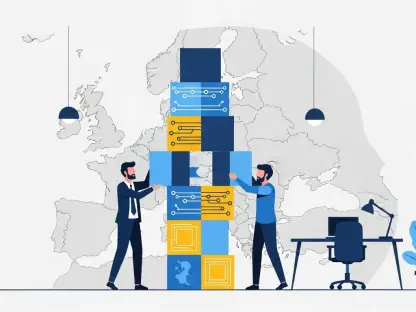Fixed version:
What happens when the backbone of AI collaboration begins to crumble under pressure, leaving countless AI agents struggling to communicate? In 2025, as the world leans heavily on interoperable AI systems, Model Context Protocol (MCP) servers are facing unprecedented challenges, with some models reporting performance drops as high as 85%. These critical systems, meant to connect diverse AI agents, often falter under the weight of mismatched constraints and overwhelming data loads. Enter MCP Interviewer, a groundbreaking Python CLI tool from Microsoft Research, designed to detect and resolve server issues before they derail agent workflows. This innovative solution promises to reshape how developers approach reliability in an increasingly connected AI landscape.
Why MCP Servers Struggle with AI Agents—and How to Fix It
MCP servers stand at the heart of a complex ecosystem where AI agents from various creators must interact seamlessly. Yet, the reality is stark: incompatibilities between servers and agents, such as context window limitations or erratic token outputs, frequently disrupt operations. Developers often remain unaware of these issues until critical failures occur, stalling projects and inflating costs. The scale of the problem is evident in performance metrics showing significant inefficiencies, particularly when agents encounter oversized data sets that overwhelm their processing capabilities.
This is where MCP Interviewer steps in as a game-changer. Released as an open-source tool under the MIT license, it offers a proactive approach by identifying potential pitfalls before they impact AI agents. By focusing on early detection of server-agent mismatches, the tool addresses a pressing need in the AI community, ensuring smoother collaboration across systems. Its arrival marks a pivotal moment for developers grappling with the hidden crises of interoperability.
The Growing Role of MCP and the Demand for Server Validation
As AI continues to evolve, the Model Context Protocol has emerged as a cornerstone for building a “society of agents”—a vision where disparate AI systems work together to solve complex tasks. MCP servers act as the vital link between large language models (LLMs) and external tools, enabling integration with business platforms and content repositories. However, the challenges are immense, with issues like token overloads—some tools averaging over 557,000 tokens—pushing systems beyond their limits and risking operational breakdowns.
The necessity for robust validation tools has never been clearer. Without proper checks, MCP servers can become bottlenecks, hindering the very collaboration they aim to facilitate. MCP Interviewer fills this gap by providing developers with a mechanism to test and refine server performance, ensuring compatibility with a wide range of AI agents. Its role is not just supplementary but essential in maintaining the integrity of interconnected AI environments.
Unpacking MCP Interviewer: Tools for Unmatched Reliability
At its core, MCP Interviewer offers a suite of powerful features tailored to bolster MCP server reliability. The tool’s constraint checking ensures adherence to provider-specific limits, such as those imposed by OpenAI, preventing deployment errors before they arise. Functional testing, powered by LLMs like GPT-4.1, conducts interactive diagnostics, logging detailed performance metrics and pinpointing errors with precision. These capabilities allow developers to address issues at their root.
Beyond diagnostics, the tool excels in LLM evaluation, using natural language rubrics to assess usability and output quality, flagging misleading metadata that could confuse agents. Additionally, its report generation in Markdown and JSON formats delivers actionable insights, summarizing violations and statistics for quick decision-making. For instance, identifying a metadata glitch that could mislead an AI agent into processing irrelevant data showcases the tool’s practical impact.
The numbers speak volumes about the challenges it tackles. With some tools producing token counts that overwhelm most LLMs, MCP Interviewer’s ability to log and analyze such metrics offers a lifeline to developers. This open-source solution stands as a critical ally, empowering teams to build servers that withstand the demands of modern AI ecosystems with confidence.
Expert Perspectives on AI Interoperability and MCP’s Future
Insights from Microsoft Research highlight a seismic shift in the AI landscape, moving away from isolated, proprietary systems toward collaborative frameworks like MCP. Their stance is clear: tools like MCP Interviewer are indispensable for enabling agentic AI, where diverse agents must operate in harmony. This vision aligns with community concerns about risks such as context overloads, which can derail even the most advanced systems if left unchecked.
Consider a scenario where a developer, on the brink of deploying a new MCP server, uses MCP Interviewer to uncover a hidden token overload issue. By preempting a potential failure, the tool saves hours of troubleshooting and preserves client trust. While it remains an experimental project, its transparency about current limitations fosters credibility, encouraging developers to engage with its ongoing refinement. Such real-world applications underscore its potential to shape the future of AI collaboration.
Implementing MCP Interviewer for Robust Server Performance
For developers eager to strengthen their MCP servers, integrating MCP Interviewer into existing workflows is straightforward yet impactful. Start by running constraint checks to verify compliance with provider limits, then proceed to functional testing to simulate real-world agent interactions. The detailed reports generated—covering everything from performance stats to qualitative feedback—provide a roadmap for optimization, ensuring servers meet diverse agent needs.
Microsoft Research emphasizes the importance of manually reviewing outputs to catch nuances that automated systems might miss. Developers are also encouraged to contribute to the open-source community, sharing feedback to enhance testing protocols and security features. Tailored strategies, such as prioritizing compatibility checks for high-traffic agents, further refine server reliability. With these steps, MCP Interviewer becomes a practical partner in navigating the complexities of MCP deployments.
Reflecting on a Path Forward
Looking back, MCP Interviewer proved to be a beacon of innovation in tackling the intricate challenges of MCP server reliability. Its comprehensive approach to testing and validation offered developers a way to stay ahead of potential failures, safeguarding the seamless interaction of AI agents. The tool’s experimental journey highlighted both its promise and the collaborative effort needed to refine it.
Moving ahead, the focus shifts to actionable progress—developers are urged to integrate this tool into their processes, leveraging its diagnostics to build stronger systems. Joining the open-source community becomes a vital step, fostering collective growth and innovation. As the AI landscape continues to evolve, the emphasis remains on preempting issues through robust validation, ensuring that interoperability challenges transform into opportunities for advancement.









